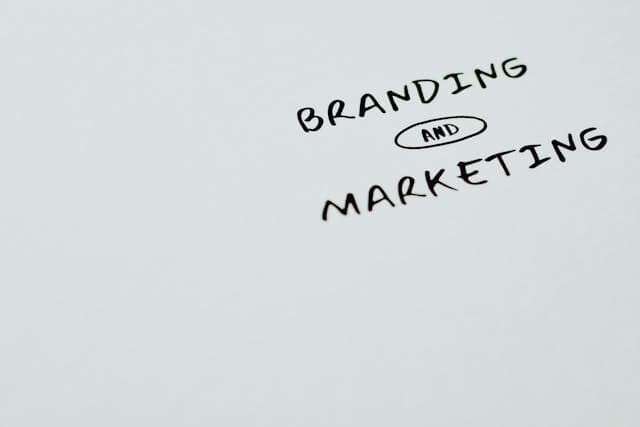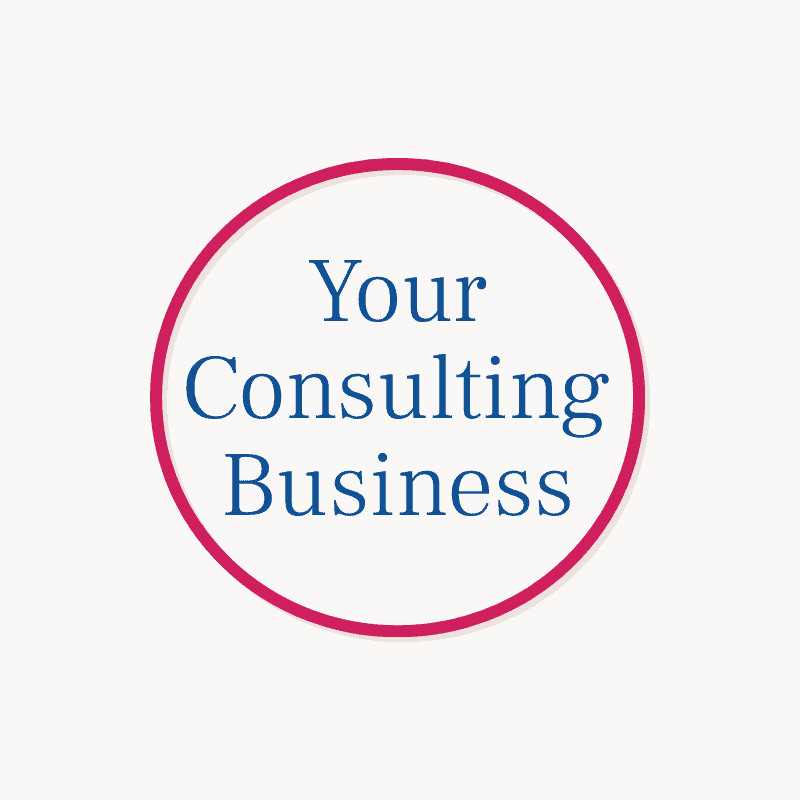
Thriving in the world of pharmaceutical industry consulting requires a unique blend of expertise spanning biotechnology, medicine, and business. As an independent consultant in the pharmaceutical industry, you provide invaluable advice based on your deep understanding of pharmaceutical product development and beyond.
Pharmaceutical industry consulting can encompass many areas throughout the life cycle of products. These areas include nonclinical and clinical development, manufacturing, regulatory approval, marketing, medical affairs and more.
Consultants in the pharmaceutical industry can be scientific researchers, physicians, pharmacists, nurses, clinical operations managers, clinical research associates, regulatory and manufacturing professionals, scientific and medical writers, project managers, marketing and business management experts, and others with relevant expertise.
Your role is pivotal in helping pharmaceutical companies accomplish their missions. For example, you may help companies find their way through the complex process of drug development, working with critical data, such as clinical outcomes, and ensuring stringent regulatory compliance. So, this work not only demands a high level of scientific knowledge and critical thinking skills, but also takes into account sales and other business aspects, and a keen eye for identifying operational inefficiencies and suggesting technological innovations.
Embarking on a journey as an independent consultant in the pharmaceutical industry means balancing financial management, client acquisition, and staying abreast of industry trends. Thriving in pharmaceutical consulting requires ensuring regulatory compliance, leveraging technology, building a robust network, and continuously adapting to the industry’s evolution.
This guide will help you identify your niche, market your services, and navigate the complexities of pharmaceutical consulting, paving the way for a thriving career.
Table of contents
1. Identifying Your Niche
Identifying your niche in the pharmaceutical industry consulting sector is critical for establishing yourself as a go-to expert and attracting the right clientele. Here’s how to pinpoint your niche effectively:
Understand Your Expertise and Passion:
- Assess your skills, knowledge, and areas of interest within the pharmaceutical field. Are you more inclined towards biotechnology, nanotechnology, nutrition, or another area?
- Make sure you have the necessary qualifications. If you are not yet a consultant and wondering how to get there, what qualifications will you need? It helps to get an undergraduate degree in Pharmaceutical Sciences. Then you should gain post-university experience in research jobs to solidify your expertise. After that, to be a consultant, you will not only need substantial formal education, but also considerable job experience.
Market Research:
- Use tools like Google Trends, Keyword Planner, and LinkedIn to identify popular topics and keywords within your industry. This can help you understand what potential clients are looking for and the services you should offer.
- Analyze the competition by researching other consultants in your area and field. Note how they position themselves, the services they offer, and their pricing strategies.
- Here is a step by step guide to market research.
Define Your Services and Clientele:
- Clearly outline the services you will provide. This could range from advising on drug development processes to ensuring regulatory compliance. Be specific about the types of projects you can handle and the pain points you aim to solve.
- Identify your ideal clients. These should be organizations or individuals directly related to your goals and who can benefit the most from your expertise. Understanding their challenges and how you can address them is crucial. See my article: Stop Wasting Your Time: Learn how to Find Your Perfect Consulting Client with Bullseye Targeting.
- Consider the dynamic nature of pharmaceutical consulting, which spans various sectors like medicines, biotechnology, and food additives. This diversity means you can choose a niche that aligns with your strengths while also being in demand.
By following these steps, you can carve out a unique position for yourself in the pharmaceutical consulting industry. Remember, choosing a niche is about finding the intersection between your passions, expertise, and market needs. This not only ensures professional satisfaction but also enhances your value proposition to potential clients.
2. Building a Strong Network
Building a strong network is essential for thriving in the pharmaceutical industry consulting sector. Here are actionable steps to expand your professional network effectively:
Join Professional Associations and LinkedIn Groups
- Professional Associations: Engage with associations such as the American Association of Pharmaceutical Scientists, and Pharmaceutical Research and Manufacturers of America (PhRMA). These organizations host networking events and provide resources to stay updated on industry trends. Of course, it is important to stay involved with professional associations that are specific to your own area of expertise.
- LinkedIn Groups: Participate in groups like Biotech and Pharma Professionals and Pharmaceutical Professionals Worldwide. These platforms allow you to connect with peers, share insights, and learn about new opportunities.
Leverage Continuing Education and Conferences
- Continuing Education: Connect with professionals taking similar courses. These connections can be valuable for sharing knowledge and opportunities. Ensure that you maintain these relationships even after the coursework ends.
- Conferences and Events: Attend industry-specific events such as medical networking events, charity events, and job fairs. Research these events beforehand, come prepared with an action plan, and dress professionally. These gatherings are excellent opportunities to meet new people, exchange ideas, and stay informed about the latest industry developments.
Online Engagement and Community Participation
- Engage Online: Regularly update your LinkedIn profile and contribute to online forums and discussions. Also, witing blogs or speaking at conferences can showcase your expertise and attract potential clients.
- Community Involvement: For example, pharmacists can take on relief shifts or participate in mass vaccination clinics to meet professionals in different work environments. Such community services not only contribute to public health but also expand your professional circle.
By actively engaging in these strategies, you can build a robust network that supports your career growth in pharmaceutical consulting. Networking not only opens doors to new employment opportunities but also enhances your communication skills, builds confidence. It provides access to valuable advice and insights from peers and mentors in the field.
3.Marketing Your Services Effectively

To effectively market your services in the pharmaceutical industry, you need to leverage both digital platforms and personal branding strategies. Here’s how you can do it:
Digital Presence and Engagement
- Optimize Your LinkedIn Profile: Ensure your profile showcases your education, skills, experiences, and interests in biotech/pharma. Regularly engage with industry content, follow companies, thought leaders, and industry groups to stay updated and visible.
- Website and Social Media: Create a professional website with a bio page to connect on a personal level. Utilize drag-and-drop builders like WIX, Squarespace, GoDaddy, or Bluehost for an easy setup. Incorporate social media platforms for free brand growth, posting regularly to foster community connections.
- Content Marketing: Publish articles, posts, and use a mix of human and AI-generated content to share your insights on industry trends and professional experiences. This not only showcases your expertise but also helps in becoming an authority in your niche.
Building a Personal Brand
- Craft a Compelling Personal Brand: Highlight your expertise, track record, and unique selling points. Use various channels like blogs, podcasts, newsletters, or social media to share insights, stories, and case studies. Develop a clear pitch that explains what you do, who you help, and how you help them.
- Engagement and Offering Value: Engage with your audience to understand their needs and offer free consultations in exchange for feedback. This approach not only helps in refining your services but also builds trust and credibility with potential clients.
Utilizing Marketing Tools and Strategies
- Marketing Automation Platforms: Implement tools like Marketo, HubSpot, and Pardot for efficient, personalized marketing campaigns. These platforms streamline lead nurturing and CRM integration, essential for tracking customer journeys.
- SEO and Digital Strategy: Optimize your online content with SEO tools like Moz, SEMrush, and Ahrefs to improve search engine rankings. Employ the RACE Framework to structure your digital strategy, covering all aspects from reaching customers to retaining loyal ones.
By integrating these strategies, you can effectively market your consulting services in the pharmaceutical industry, ensuring you stand out in a competitive market.
4. Negotiating Contracts and Pricing

When negotiating contracts and pricing in the pharmaceutical consulting sector, it’s essential to approach the process with a clear strategy and understanding of your value. Here are some actionable steps to ensure successful negotiations:
Understanding Your Worth and Market Rates
- Research Market Rates: Before entering negotiations, familiarize yourself with the going rates for similar consulting services. Utilize resources like industry publications, consulting firm websites, and discussions with peers to get a comprehensive view.
- Calculate Your Rate: Start by estimating the number of hours a project will likely take and multiply that by your hourly rate. Consider your specific expertise, historic rates or salary to refine your pricing.
- Factor in Expenses: Don’t forget to account for general expenses, travel, HR, healthcare costs, and business insurance when setting your rates. This ensures your pricing covers your costs and leaves room for profit.
Crafting Your Proposal

- Price List and Flat Fees: If possible, create a price list or calculate a flat service fee for each project type. This simplifies the negotiation process for both parties and provides clear expectations from the start.
- Scope and Deliverables: Clearly define the scope of work, deliverables, and timelines in your proposal. This helps prevent scope creep and ensures both parties are aligned on expectations.
- Flexibility and Options: Offer flexible pricing options and tailor your proposal to the buyer’s needs. This shows your willingness to work within their budget while still maintaining your value.
Negotiation Strategies
- Start High: Begin with a price higher than your minimum acceptable price to allow room for negotiation. Be aware of the client’s budget but ensure the final price is profitable for you.
- Be Open to Compromise: While it’s important to start with a higher asking price, also be prepared for counteroffers. Be creative in negotiations but ensure any compromise is still beneficial to you.
- Contract Terms: Include terms for contract renewal, cancellation, and dispute resolution. It’s also critical to ensure the contract protects your intellectual property rights.
- Confirm in Writing: Once a mutual agreement on pricing and terms is reached, confirm the agreement in writing. This ensures all parties have a clear understanding and agreement on the terms.
By following these steps and maintaining a clear understanding of your value and the market rates, you can negotiate contracts and pricing that are fair, clear, and beneficial for both parties. Remember, successful negotiation is not just about getting the highest price but about creating a sustainable, profitable relationship with your client.
5. Staying Ahead of Industry Trends
To stay ahead in the dynamic field of pharmaceutical industry consulting, it’s essential to continuously update your knowledge and skills. Here’s how you can ensure you’re always at the forefront of industry trends and advancements:
Continuous Learning and Development
- Online Forums and Publications: Engage with platforms to stay informed about the latest news and trends in the pharmaceutical industry. Regularly reading industry publications, and subscribing to newsletters can provide insights into new research, clinical guidelines, and industry developments.
- Continuing Education: Utilize online resources for continuing education. These platforms offer a range of courses and materials that cover the latest in drug development, regulatory compliance, and patient care.
- Professional Development: Attend events and webinars organized by the International Society for Pharmaceutical Engineering (ISPE) or the PDA to gain insights from speakers, panels, and workshops on GMP topics. Enrolling in courses offered by reputable universities or platforms on GMP principles, quality systems, and regulatory affairs can also significantly enhance your knowledge base.
Embracing Technology and Innovation
- Pharmaceutical IT Solutions: Stay updated on the latest technological advancements, such as artificial intelligence, digitalization, and automation. The global pharmaceutical technology market is expected to reach significant growth, indicating the increasing importance of technology in the industry.
- AI and Machine Learning: Explore the potential of AI and machine learning in revolutionizing drug discovery and development. AI’s capacity for rapid pathogen discovery and treatment development is transforming the biotech space, making it crucial for consultants to understand these technologies.
- Digital Therapeutics and Analytics: Familiarize yourself with digital therapeutics aimed at promoting healthier lifestyles and advanced analytics for personalizing treatments. Understanding how to utilize natural language processing (NLP) to analyze patient data can help in tailoring more effective treatment plans.
Staying Informed on Regulatory and Market Trends

- Regulatory Guidelines: Follow regulatory bodies like the FDA and EMA for the latest guidance documents, inspection reports, and alerts on good manufacturing practice (GMP) matters. This ensures your consulting practices align with current regulatory expectations.
- Market Trends: Keep an eye on pharma industry trends, including pricing pressures, mergers and acquisition (M&A) activities, and the evolving landscape of drug development and commercialization. Subscribing to reputable pharmaceutical publications and attending industry events can help you stay informed about these trends.
- Innovation and Strategy: Understand the importance of innovation in staying competitive. Companies are encouraged to reinvent their strategies by leveraging AI and analytics, focusing on cost management, and exploring creative mergers and acquisition (M&A) structures to thrive in the challenging pharmaceutical industry environment.
By integrating these strategies into your professional routine, you can ensure that you remain a valuable asset in the pharmaceutical industry consulting field, capable of providing your clients with the most current and effective solutions.
6. Leveraging Technology and Tools

In the rapidly evolving pharmaceutical industry, leveraging technology and tools is essential for enhancing efficiency, ensuring compliance, and providing value to clients. Here’s a breakdown of essential technologies and tools that can significantly benefit pharmaceutical industry consultants:
Market Access and Strategy Tools
- Comprehensive Market Access Strategy: A successful pharmaceutical product launch hinges on a well-crafted market access strategy, understanding existing brands, their coverage, and the impact on payer access.
- OSA Framework: Optimize marketing strategies using the Opportunity > Strategy > Action (OSA) framework to align opportunity identification with strategic planning and actionable steps.
Customer and Compliance Management
- Customer Relationship Management (CRM) Systems: Platforms like Salesforce or Zoho CRM are invaluable for managing interactions with healthcare professionals, tracking customer data, and improving relationship management.
- Compliance Monitoring Tools: Ensure content remains within industry standards and legal requirements with tools like Veeva Systems or Brandwatch Compliance. Also, see Qualio’s guide to pharmaceutical software.
Data Analytics and Reporting

- Analytics Tools: Google Analytics and Adobe Analytics provide insights into website traffic, audience behavior, and campaign performance, enabling data-driven decision-making.
- Data Visualization Tools: IQVIA, Tableau, and Microsoft Power BI offer powerful data visualization capabilities, creating interactive dashboards for a comprehensive view of data.
Engagement and Learning Platforms
- Presentation Tools: Create dynamic presentations with Prezi, Veeva Vault PromoMats, and DocSend, which also provide real-time engagement analytics.
- Learning and Development Platforms: For continuous learning, platforms like Cornerstone OnDemand, Udemy for Business, and LinkedIn Learning offer courses tailored to the pharmaceutical industry. Beyond Udemy for Business, Udemy has many courses relevant to consulants in the pharmaceutical industry. Peri has courses relating to clinical development, biotechnology, project management and other areas relevant to pharmaceutical product development.
Collaboration and Communication
- Video Conferencing and Messaging Apps: Zoom, Microsoft Teams, and Slack facilitate team collaboration and communication, essential for remote or distributed teams.
By integrating these technologies and tools, pharmaceutical industry consultants can streamline their operations, enhance client engagement, and stay ahead in the competitive landscape of pharmaceutical industry consulting.
Conclusion
In this guide, we’ve covered essential strategies for succeeding as an independent consultant in the pharmaceutical industry.
Identifying your niche, building a strong network, marketing your services, and negotiating contracts are foundational steps for a thriving consultancy. Emphasizing continuous learning and leveraging technology highlights the need for a multifaceted approach in this dynamic field.
Incorporating these strategies will enhance your consultancy’s impact and ensure resilience amid evolving market demands and regulatory changes.
Use this guide as a reminder of the importance of adapting to industry shifts, utilizing advanced technologies, and cultivating meaningful connections. The journey may be challenging, but the potential for growth and significant contributions to the pharmaceutical world is immense.
FAQs
How to Start a Career as a Pharmaceutical Industry Consultant
Q: What steps should I take to become a consultant in the pharmaceutical industry?
A: To embark on a career as a pharmaceutical consultant, one should follow these steps: Obtain a bachelor’s degree, pursue a graduate degree, familiarize oneself with every phase of pharmaceutical development, acquire management and pharmaceutical industry experience, get certified, stay updated on industry developments, and identify a specialty area to focus on.
Understanding the Pharmaceutical Industry’s Growth
Q: Which segment of the pharmaceutical industry is experiencing the fastest growth?
A: The fastest-growing segment within the pharmaceutical industry is the emerging markets. Notably, the BRIC countries (Brazil, Russia, India, and China) have seen a significant increase in sales, highlighting the surge in growth coming from these emerging markets.
Future Thriving Strategies for the Pharmaceutical Industry
Q: What strategies should pharmaceutical companies adopt to ensure future success?
A: To thrive in the future, pharmaceutical companies should focus on accelerating growth by fully embracing artificial intelligence (AI), analytics, and other emerging technologies. This involves speeding up the entire value chain, from drug development to market uptake, by leveraging these technologies in a responsible manner to create impactful use cases.
Keys to Success in the Pharmaceutical Field
Q: What are the essential skills for success in the pharmaceutical industry?
A: Success in the pharmaceutical industry requires a blend of skills, including effective communication, precision, strong interpersonal and organizational abilities, an ethical mindset, curiosity, and technical proficiency.
accounting AI AI writing become a consultant bootstrapping career move ChatGPT clinical operations clinical research clinical research associate clinical trials consultancy business consulting consulting skills content marketing contracts cruise ship deliberate practice diversify income do your consulting work anywhere find clients freelance consultancy future grow your consultancy habits how much to charge improve performance invoices learning market research mentors money network niche plane productivity register your business sales funnel security Singularity starting your consulting business time management tracking time web hosting work-life balance
